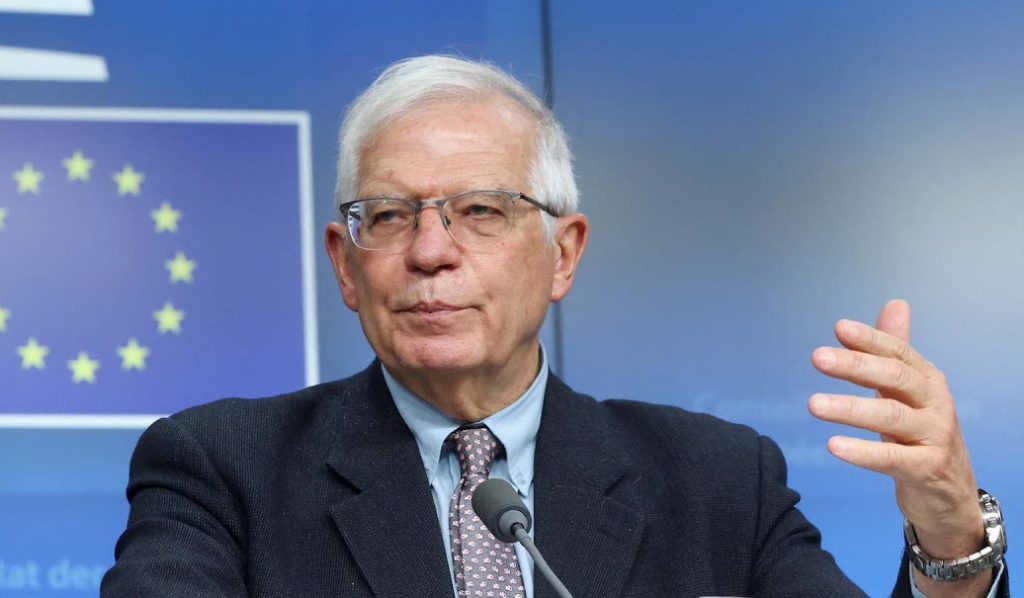Australia/Israel Review
Europa Europa: Airing the Laundry
Mar 30, 2023 | Alex Benjamin

Most Jewish households in Europe, certainly mine anyway, had an unwritten code when it comes to Israel. No matter the political situation, we didn’t wash our dirty linen in public.
In that regard, it’s been a challenging time for many of us in Europe. What the heck do we do when the country is so utterly riven with division over the Government’s judicial reform proposals?
In our office, there are two schools of thought. One says that we shouldn’t talk about it. Nobody knows how this will end, and in any case, no good can come from pitching in on something that is being so widely reported.
The second school of thought says that we owe it to those who have placed their trust in us, journalists and politicians alike, to explain what is going on. And more to the point, how can we expect to be taken seriously if we ignore the huge elephant in the Israeli room?
Doubtless, there are some readers who have already chosen their school before reading any further. I’m a member of the second school, by the way.
I’m a member because if we don’t explain, others will try to fill the space for us. Take, for example, a debate headed by EU Foreign Policy Chief Joseph Borrell in Strasbourg: “Deterioration of democracy in Israel and consequences on the occupied territories.”
More readers may remember that in a previous column I mentioned that Borrell was unlikely to ever be invited to dinner in Israel.
I think you can now add breakfast and lunch. He has been blocked from visiting the country by Israel’s Foreign Ministry not only because of his views of the state of Israel’s democratic credentials, but also because of a published article in which he compared Israeli settler attacks in the West Bank to Palestinian terrorist attacks against Israelis.
Even that wasn’t enough. He then criticised Israeli military operations that “frequently cause civilian Palestinian deaths, often without effective accountability” and “illegal settlements” that are “expanding on occupied land.”
A wit in our office said, “If I was the PA’s spokesman I’d be quaking in my boots: Borell wants my job!” Subtle diplomacy this was not. And Mr Borrell has a phalanx of press people to help him spread his words across Europe. For me, silence is therefore not an option.
Whilst I am obviously concerned at the levels of “dirty linen” that Israel is exposing to the world, I also believe in being circumspect about alarmist language. For me what Israel is going through right now is a sign of a healthy democracy. We should also remember that Israel is a young democracy – a mere 75 years old.
Speaking of history, debates on the role of Israel’s judiciary recall both the ancient Greek philosophers who asked “who judges the judges?” and present-day Europe, where Poland’s and Hungary’s democratic credentials have been criticised over efforts to strip power away from their own judiciaries.
In truth, there is clearly a case for some modicum of reform of Israel’s judiciary, and a debate about it should take place. But in order for a meaningful debate to take place, trust in the people leading it is a prerequisite. Would you trust a government made up in part of untried and untested fringe parties, one-issue populists, and religious groups concerned primarily about the narrow needs of their separatist communities, all headed up by a prime minister under indictment? I don’t say that to be glib – it is just a reflection of reality.
Of course, on the other hand, this coalition was duly and legally elected by the Israeli public, and it has a point in saying that the courts should respect its mandate and not put undue obstacles in the way of its agenda.
I won’t be getting off the fence here, even though I clearly have an opinion. That’s because, one, I’m not an Israeli citizen and two, unlike some organisations, my view is largely inconsequential and would be proffered only as a way to stroke my own vanity.
But I believe I can and must provide some much-needed context to friends, and the politicians and diplomats with whom I work and who trust my analysis.
I must because if I don’t, more voices like Borrell’s will have a field day. And, indeed, the more I think of it, our “dirty laundry” – the scuffs and stains of fighting for democracy – should be something to be talked about with pride. I mean, look at how our neighbours Iran, Syria, Lebanon or Egypt deal with political debate and civil unrest?
None of us are whiter than white. Democracy is never straightforward and is often messy. And spotless laundry only exists in detergent adverts. That’s why I talk about Israel, even when issues are complicated and uncomfortable.






